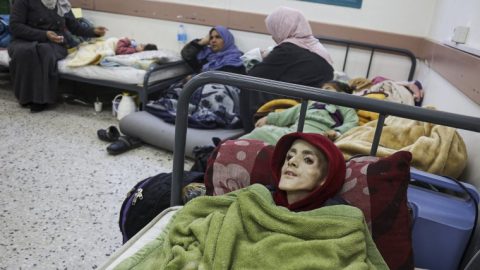In a year when loved ones, jobs and individual freedoms were lost in the pandemic, it wouldn’t be surprising if people around the world felt greater dissatisfaction with their lives.
However, while mental health has declined in many countries, there has been a surprising resilience in how people rate their lives overall, according to this year’s World Happiness Report.
The world’s happiest country also stayed the same, as Finland came out on top for the fourth straight year. Denmark was second and Switzerland third. Iceland and the Netherlands completed the top five, while the United States ranked 19th on the list.
Finland, a small Scandinavian country with a population of around 5.5 million, has used past wins to tout tourism and promote its natural beauty.
It has fared relatively well during the pandemic compared to other European countries, recording 805 total deaths, according to Johns Hopkins University data.
The country has consistently ranked high on the measures of mutual trust that have helped protect lives and livelihoods during the pandemic, the report said.
“For the 4th year in a row, #Finland is the happiest country in the world,” tweeted the Finnish Embassy in the United States on Friday. “Our #happiness stems from a balanced everyday life, supported by good governance, trust, wellbeing and equality. The pandemic has not changed this long-lasting foundation.”
Download the NBC News app for breaking news and politics
The annual happiness rankings are based on citizens’ evaluations of their own lives. The study uses data from the Gallup World Poll, which asks respondents to assess their life as a whole by imagining a ladder, with the best possible life for them as 10 and the worst possible as 0.
This year’s report looked specifically at the relationship between well-being and Covid-19. It also attempts to assess how governments around the world have dealt with the coronavirus and to explain why some countries may have done better than others.
Reflecting the global nature of the pandemic and the widely shared resilience when faced with it, Covid-19 has led to only modest changes in the overall country happiness rankings, according to the study, which is a publication of the United Nations Sustainable Development Solutions Network.
“Surprisingly there was not, on average, a decline in well-being when measured by people’s own evaluation of their lives,” said John Helliwell, an editor of the report and a professor emeritus at the University of British Columbia in Canada.
“One possible explanation is that people see Covid-19 as a common, outside threat affecting everybody and that this has generated a greater sense of solidarity and fellow-feeling,” he added.
While people’s life satisfaction may not have been dramatically affected by Covid-19, emotions and mental health did change during the first year of the pandemic. The report this year paid more attention than usual to specific daily emotions in order to track the pandemic’s impact on different aspects of life.
The study found, for example, that there was an approximately 10 percent increase in the number of people who said they were worried or sad the previous day.
It also assessed that there had been a “large and immediate” decline in mental health in many countries when the pandemic first hit. Average mental health later improved but didn’t recover to where it had started, it added.
The report noted that not being able to work during the pandemic also had a negative impact on well-being, with unemployment associated with a 12 percent decline in life satisfaction.
Like everything, the researchers’ work was also affected by the pandemic.
Gallup was unable to conduct face-to-face interviews, which were previously used for more than 75 percent of the countries surveyed. The shift to phone surveys may in some countries have changed the pool of respondents, the report added.
One question the report wrestles with is why there have been such different death rates around the world. While noting a myriad of other reasons, trust is identified as an important factor in helping governments protect their populations from the pandemic.
Countries where people expected their lost wallets to be returned by neighbors or strangers were associated with far fewer deaths, it said.
In East Asia, among other places, evidence also showed that people’s well-being improved when the government acted.
“The East Asian experience shows that stringent government policies not only control Covid-19 effectively, but also buffer the negative impact of daily infections on people’s happiness,” said Shun Wang, an editor of the report.










Recent Comments